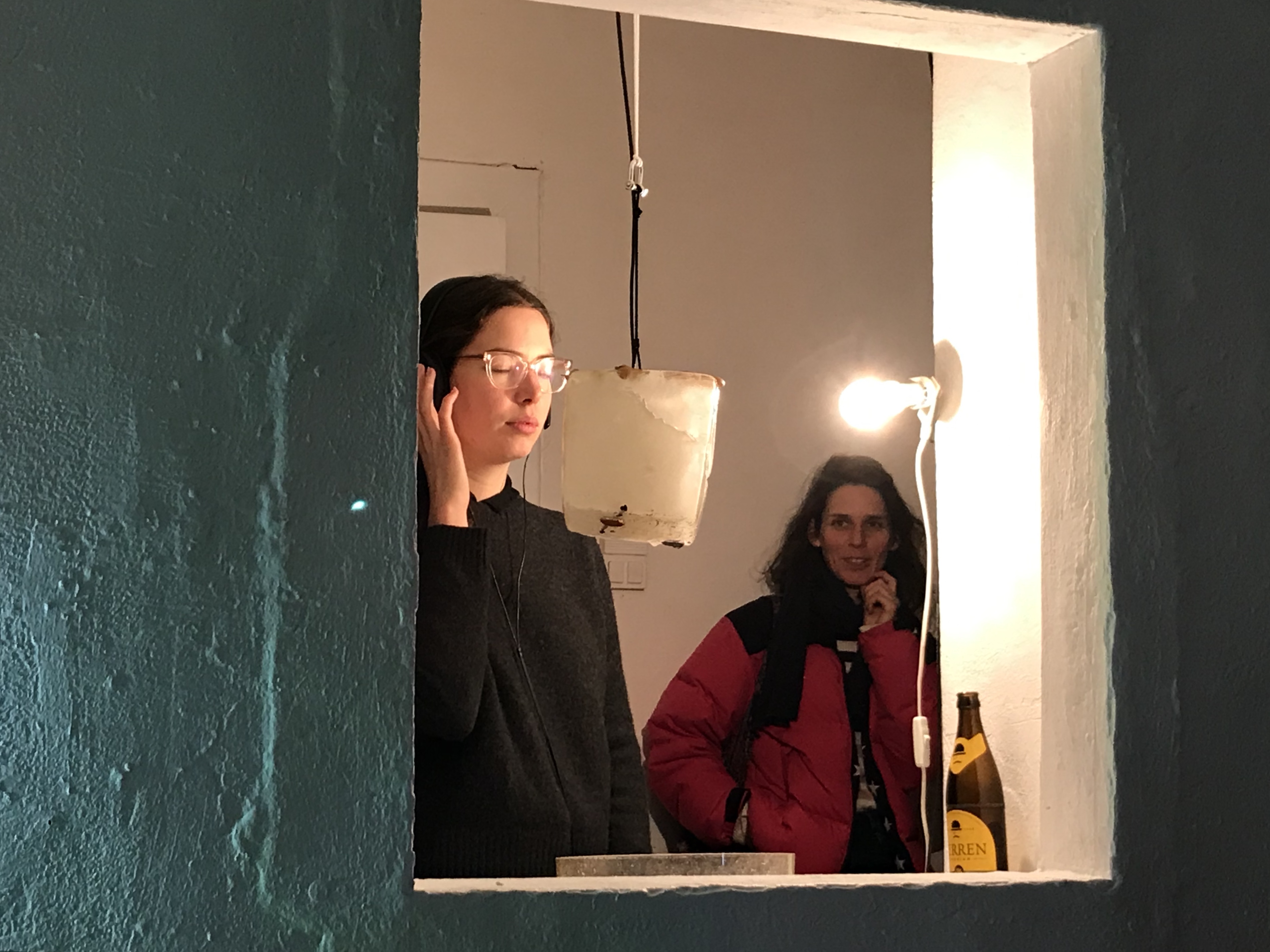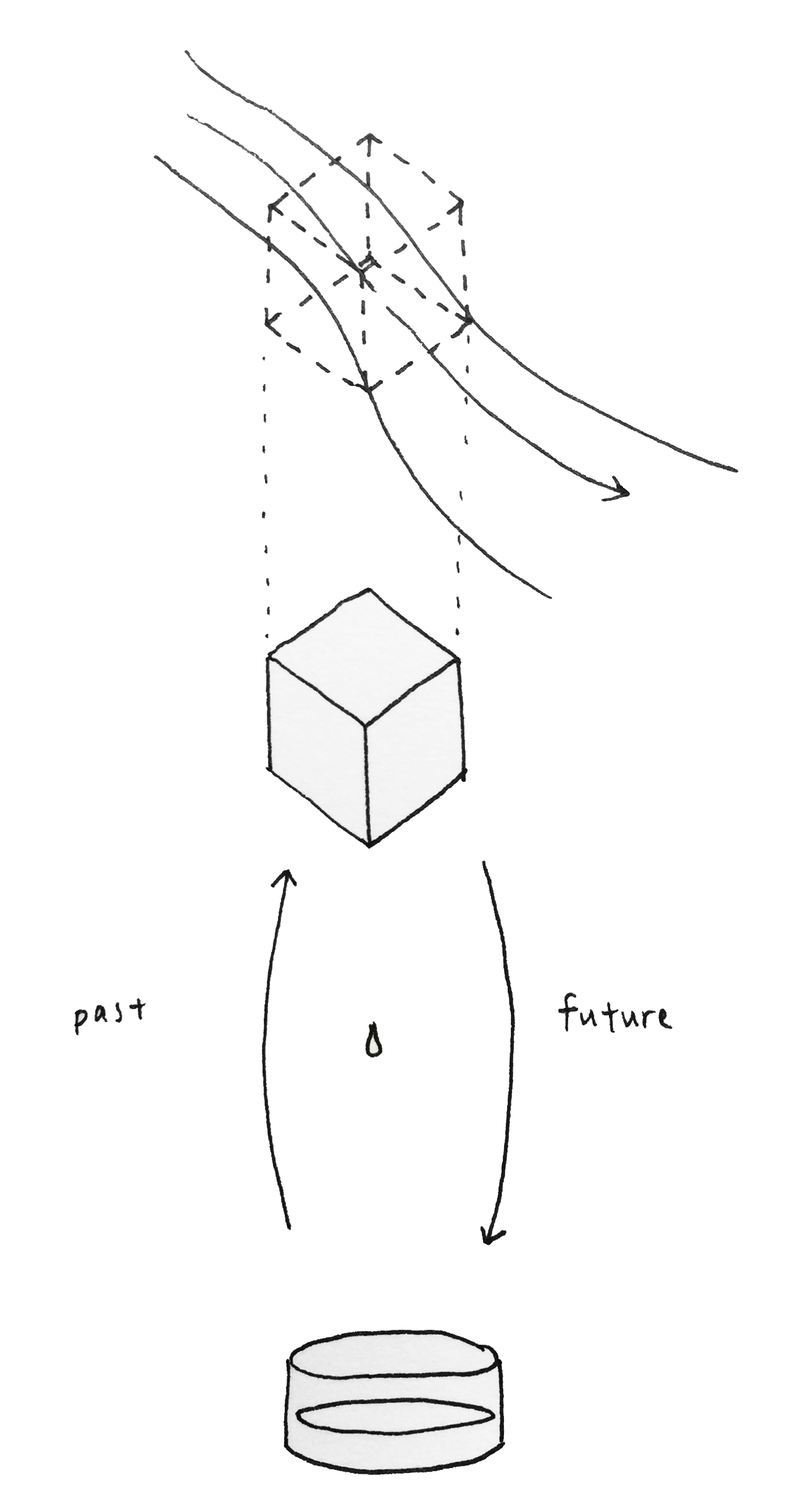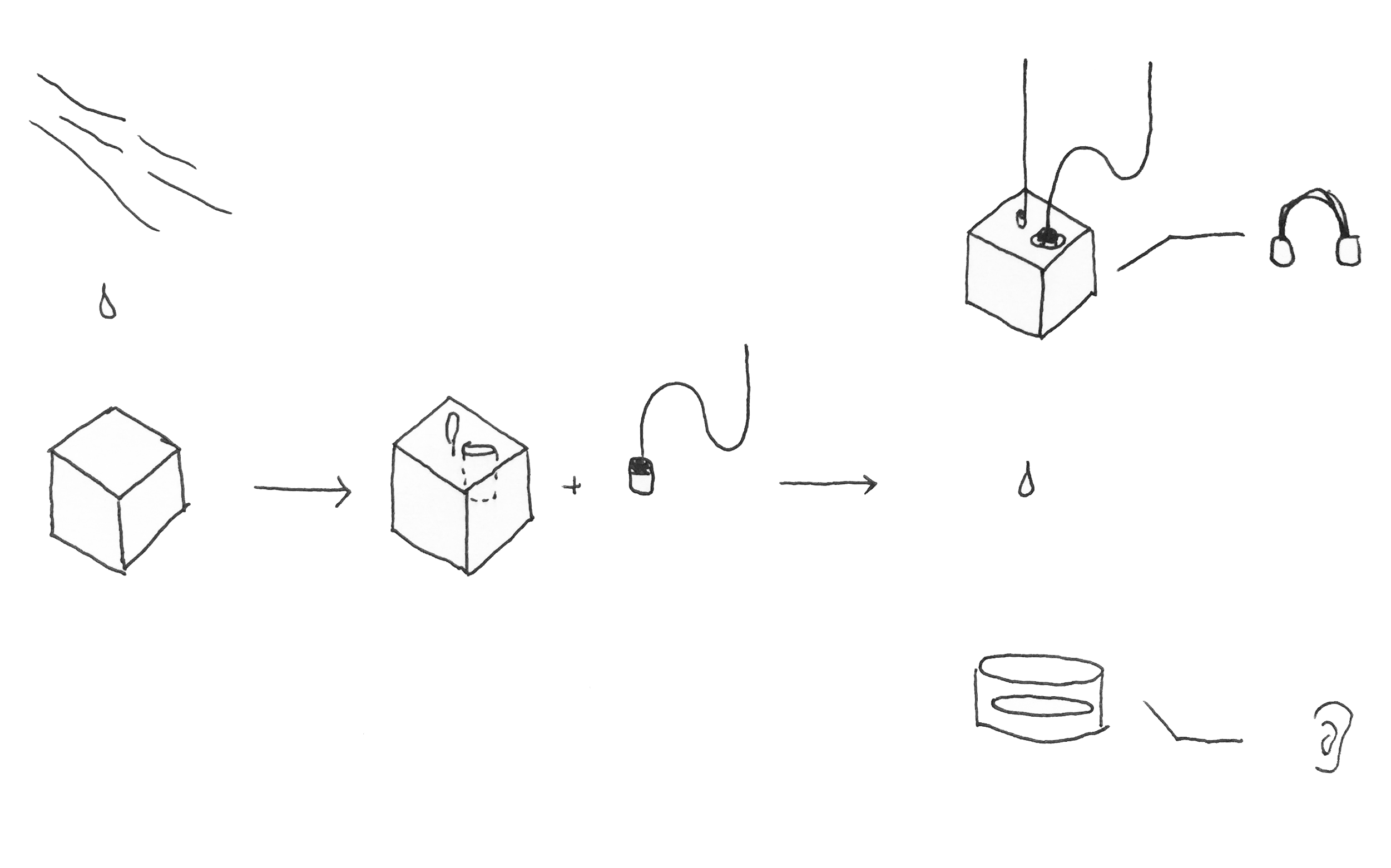Retention of A River
Berlin, Germany
2 channel sound installation
Ice, hydrophone, headphone
ACUD MACHT NEU,
07. 2019
Veteranenstraße 21, 10119 Berlin
SoundsAbout, Project Space
12. 2019
Potsdamer Straße 161, 10783 Berlin, Germany
about.sounds.berlin
Water≈sound≈city
curated by Francisco Petrucci


What, then, is time? If no one ask of me, I know; if I wish to explain to him who asks, I know not.
Yet I say with confidence, that I know that if nothing passed away, there would not be past time; and if nothing were coming, there would not be future time; and if nothing were, there would not be present time.
Those two times, therefore, past and future, how are they, when even the past now is not; and the future is not as yet? But should the present be always present, and should it not pass into time past, time truly it could not be, but eternity.
—St. Augustine Bishop of Hippo, The Confession, Book XI
The past is no longer here, and the future has not yet come. How does the present exist if it is always in the present?
When we reach a river, we can never touch the same drop of water: every moment instantly becomes the past while the future arrives in our palms.
Husserl defined retention as the process whereby a phase of a perceptual act is retained in our consciousness. It is a presentation of that which is no longer before us and is distinct from immediate experience.
In this installation, a little part of the river Spree is frozen. It becomes a media to carry time and makes the subtle transformation visible and audible. The ephemeral material transforms every microsecond, but the retention of the process presents our memory(past), perception(present), and imagination(future) at the same time.
Yet I say with confidence, that I know that if nothing passed away, there would not be past time; and if nothing were coming, there would not be future time; and if nothing were, there would not be present time.
Those two times, therefore, past and future, how are they, when even the past now is not; and the future is not as yet? But should the present be always present, and should it not pass into time past, time truly it could not be, but eternity.
—St. Augustine Bishop of Hippo, The Confession, Book XI
The past is no longer here, and the future has not yet come. How does the present exist if it is always in the present?
When we reach a river, we can never touch the same drop of water: every moment instantly becomes the past while the future arrives in our palms.
Husserl defined retention as the process whereby a phase of a perceptual act is retained in our consciousness. It is a presentation of that which is no longer before us and is distinct from immediate experience.
In this installation, a little part of the river Spree is frozen. It becomes a media to carry time and makes the subtle transformation visible and audible. The ephemeral material transforms every microsecond, but the retention of the process presents our memory(past), perception(present), and imagination(future) at the same time.




Audience can listen to the subtle cracking sound of the melting Spree ice through the headphone. In this room, dripping sound is clear and stable. Keeping the experience calm and individual.
Time is carried by the drip, while falling into the glass container, it falls in to the past of the ice, as well as the future of it.





